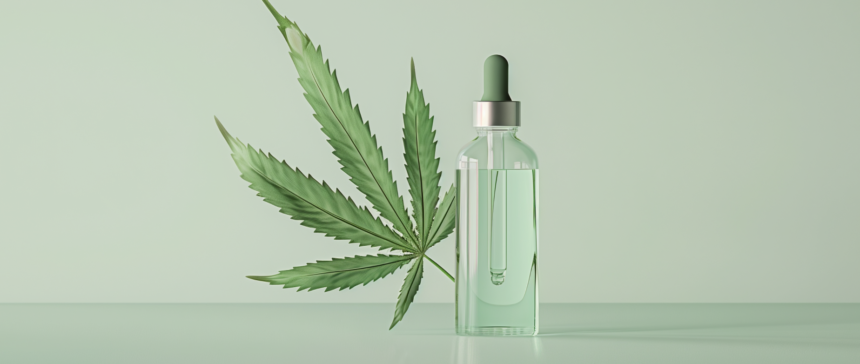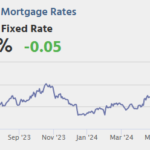Cannabidiol (CBD) products have become super popular over the past few years, with sales of CBD products in the US reaching $4.4 billion in 2024.
Some 44% of regular CBD consumers spend between $20 and $80 per month on oil tinctures, gummies, creams, and other small, lightweight, easily shippable products. With recent regulatory relaxations across the US, CBD dropshipping is a lucrative idea for those looking to start a business.
With dropshipping, you don’t need to invest money into inventory storage and shipping processes—simply sell existing CBD products and forward customer orders to your CBD suppliers for fulfillment.
To dropship CBD successfully, you need to understand regulations, carefully research suppliers, and build a popular ecommerce website. Use this guide to nail the basics and open your CBD dropshipping store.
What is CBD dropshipping?
CBD dropshipping is the process of selling products containing hemp-derived cannabidiol through an online store.
The difference between a traditional CBD producer or seller, and a dropshipping CBD business, is that you don’t need to hold inventory. Dropshippers work with third-party suppliers that source, store, package, and ship orders as they come in.
CBD dropshippers create and manage online stores where they list products from one or more suppliers. They’re responsible for building, branding, and marketing the store, as well as ensuring customers receive their orders and have a positive shopping experience.
You can build and run a CBD dropshipping store with Shopify, connecting with suppliers and managing orders from a single platform. Learning how to dropship with Shopify is simple and straightforward to get started.
Understanding CBD laws and regulations
Even though (most) CBD products don’t contain intoxicating compounds such as tetrahydrocannabinol (THC), they are derived from cannabis plants. As such, dropshipping CBD means taking part in a highly regulated market.
CBD dropshippers need to stay updated on the latest state laws and federal regulations for selling CBD—as well as the terms and conditions of any ecommerce tools and platforms they use.
Laws for selling hemp-derived products vary between states, countries, and platforms. Here are the basic requirements for dropshipping CBD within the US, and for selling hemp-derived products on Shopify.
CBD regulations in the US
Federal laws
The passing of the 2018 federal Farm Bill removed hemp products containing low amounts of intoxicating cannabis compounds from the government’s controlled substances list. As a result, hemp plants and products with less than 0.3% THC can be legally farmed, bought, sold, and transported in all areas of the US without state-level restrictions.
However, there are still federal requirements for how CBD and hemp products are marketed. Because non-prescription cannabis products are not FDA-approved, CBD sellers—dropshippers included—can’t recommend their CBD products for medical or therapeutic uses.
State laws
Most states allow the sale and consumption of CBD products. However, regulations differ when it comes to the level of THC permitted in cannabis-derived products, and whether cannabis products can be produced from marijuana or hemp strains of the plant.
For example, Arizona and Colorado place no additional restrictions on CBD products, while Idaho’s CBD regulations say that products must be made from specific parts of hemp plants and cannot contain any traces of THC.
When choosing CBD products to sell in your dropshipping store, make sure you understand whether a product is made from hemp or marijuana. Know whether it’s THC-free, contains less than 0.3% THC, or contains larger, psychoactive amounts of THC.
The THC concentration of a cannabis product will often determine whether it can legally be sold from your store’s location and shipped to the customer’s destination.
Age restrictions
Although most CBD products contain trace amounts of THC, some state laws prevent people under the age of 18 or 21 from buying them. If you sell CBD products to customers in those states, you’ll need to verify that visitors to your dropshipping store meet the age requirements.
A common way to verify the age of visitors to your store is to use a pop-up form. Install a pop-up app from the Shopify App Store to ask visitors to confirm their age.

Selling CBD on Shopify
To dropship CBD products using a Shopify store, CBD sales must be permitted in your store’s location, as well as the shipping destinations of your orders. For US merchants, CBD products must also be derived from hemp plants.
Shopify lists requirements for selling hemp products in the US, and cannabis products in Canada. These say that products:
- Must be produced and labeled as required by federal, state, and local laws
- Must not be marketed as having a medicinal or therapeutic benefit, unless approved by the FDA
Merchants selling CBD or cannabis products to or from other locations are responsible for adhering to regional and local laws, as well as Shopify’s hemp policies.
Payment processing for CBD products
While you can build a CBD dropshipping store on Shopify, you can’t use Shopify Payments to process CBD or THC product sales. Instead, you’ll need to add a third-party payment processor, such as DigiPay and Bankful to your Shopify checkout. Other payment providers may have their own approval processes.
Make sure you understand all of your payment options for hemp, CBD or THC sales on Shopify.
Notification options for hemp products
Another Shopify feature that is not available for hemp sales is SMS notifications. As a result, order and shipping notifications can only be sent to customers via email.
How to get started with CBD dropshipping
From choosing the right supplier to setting up your online store, here’s a guide to help you launch your CBD dropshipping business.
1. Find a CBD supplier
Choosing the right supplier is crucial for the success of your dropshipping business. According to Thys du Plooy, founder of Our CBD Pantry, one of the biggest benefits of dropshipping CBD is the ability to source “truly outstanding products” from a diverse pool of suppliers, rather than offering “products that aren’t necessarily as good, but are convenient due to wholesale relationships.”
When selecting a supplier, it’s important to assess product quality, stock availability, and shipping speed. Opt for suppliers who maintain a consistent stock and can dispatch orders swiftly. Judge these features by ordering samples—perhaps under multiple aliases.
Also, working with several suppliers to offer a variety of products, such as tinctures, gummies, and creams from different growers and brands, can help cater to customer preferences and niches within the CBD market.

Supplier lab testing
Aside from testing CBD products, the standard way for sellers and customers to verify the quality of a supplier’s product range is by reading lab reports.
Try to only partner with suppliers that provide up-to-date certificates of analysis (COA) for their products from third-party labs. A COA should disclose concentrations of CBD, THC, and other cannabis compounds, as well as confirm that a cannabis extract is free from toxins like pesticides or heavy metals.
Including COAs on your store’s product pages is a good way to boost customer trust and demonstrate transparency.

“Customers want to know who they are dealing with, that suppliers are knowledgeable and reputable, and that the product is of a high standard,” says Thys.
If you’re struggling to find dropshipping suppliers that specialize in hemp products, here are a few options to kickstart your research:
2. Set up your online store
Once you’ve secured a supplier, the next step is creating an online store. This involves choosing a domain name, setting up hosting, and building an ecommerce website with essential features, such as a homepage, product catalog, and detailed product pages.
With CBD products still being a relatively new product category, adding a blog or learning resource can provide potential customers with valuable information, as well as improve your store’s search engine optimization.

Platforms like Shopify have professionally designed themes that you can add to your store with a few clicks, making store creation easy and code-free. Shopify even has ready-made health and beauty website themes to give your CBD dropshipping store an appropriate vibe.
If you’re using Shopify to set up your store, remember to add an alternative payment processor, due to Shopify Payments restrictions on processing CBD sales.
3. Add CBD products to your store
After setting up your store, populate it with products from your supplier. The CBD industry is constantly evolving, with new growers, manufacturers, and product types entering the market. Today, a typical CBD-based product line might include:
- Supplements, capsules, and pills
- Oil tinctures
- CBD flowers
- CBD products for dogs and pets
- CBD oils for vaping
- CBD gummies and edibles
- Creams, lotions, and topicals
- Bath bombs
- Lubricants
- Sprays and atomizers
Enhance listings with high-quality images and detailed product descriptions. Apply conversion rate optimization strategies such as showcasing customer reviews, which nine out of 10 customers use prior to making an online purchase.

Other trust signals like money-back guarantees, third-party certifications, and thoughtful, detailed copywriting will help establish your store as a go-to destination for shoppers.
4. Promote your products
Finally, it’s essential to implement marketing strategies to attract customers. Use content marketing to target specific search queries related to CBD products. Discover the keywords your target customer is searching for, then produce best-in-class content to answer their query.
Leverage email marketing to build relationships with potential customers. Encourage website visitors to join your email list with coupon codes or exclusive content. It’ll give you a direct line of communication with customers—even if they haven’t purchased yet.
Influencer marketing is another way to gain credibility and widen your brand’s reach. A reported 69% of consumers trust influencers over information coming directly from a brand.
Also, consider paid ads on Meta and Google. Note that some advertising platforms restrict how hemp-derived products can be advertised—you may need to edit your campaign messaging to meet acceptance criteria.
CBD dropshipping: best practices
Here are some essential tips to follow during the first few months of your CBD dropshipping business and beyond:
- Stay compliant: Always keep up to date with the latest CBD regulations and laws in your sales areas. Compliance helps avoid legal issues and builds trust with your customers.
- Select high-quality suppliers: Work with dropshipping suppliers that provide quality products. Suppliers are silent partners: customers will associate their experience, positive or negative, with your store and brand.
- Optimize your website: Ensure your website is user-friendly, fast, and mobile-optimized. A well-organized, attractive site increases customer satisfaction and conversion rates.
- Utilize customer feedback: Actively seek and listen to customer feedback. A big perk of dropshipping is the ability to switch up your product line, so use this flexibility in combination with customer feedback to improve your product selection.
- Consider white labeling: Explore white label products to add exclusivity to your offerings. White labeling allows you to brand existing CBD products as your own, which can help in establishing brand identity.
Dropship CBD in 2024
Navigating CBD rules can be tricky. But, it’s an industry that’s full of new ideas and eager customers. By choosing to dropship CBD, you’re stepping into a thriving market without having to deal with making, storing, or shipping products yourself.
CBD dropshipping FAQ
Can you dropship CBD?
You can dropship CBD products by creating an online store and partnering with a supplier that specializes in CBD. Popular options for CBD dropshipping include hemp oil, supplements, lotions, and skin care items. However, it’s important to understand the legal requirements for selling CBD in your store’s and customers’ locations.
Is dropshipping CBD profitable?
CBD dropshipping can be a profitable business for first-time entrepreneurs. To maximize your earning potential, choose a high-quality product at a low price. Markup the same product on your online store with a high profit margin and net the difference.
What makes dropshipping CBD different from dropshipping other products?
Because CBD products contain cannabis-related compounds, the dropshipping process is slightly different from other products. CBD is a highly regulated product, which makes dropshipping more complex. Laws for selling hemp-derived products vary widely between countries, and even between states in the US. The CBD industry also encompasses a wide variety of hemp products to dropship. CBD dropshipping can be highly profitable when done right, with CBD products selling for a premium price.
How do you price CBD products for dropshipping?
When pricing CBD products, calculate the total costs of buying and selling the product, including supplier fees and shipping costs. Research the sale price of comparable CBD products. Price yours competitively while covering the cost of sale.
Does Shopify allow the sale of CBD products?
Shopify does allow the sale of CBD products on its platform. However, merchants must comply with specific requirements for selling hemp and hemp-derived products, which include abiding by all applicable local laws. While CBD sellers can use Shopify, they cannot process sales of CBD products using Shopify Payments.
Do you need a license to sell CBD-infused products online?
No federal license is needed to sell CBD products online. However, state laws may require sellers to obtain a general business license or specific license for selling hemp-derived products. If you plan to sell products containing more than 0.3% THC, your store may require additional licensing and be restricted in certain states.








